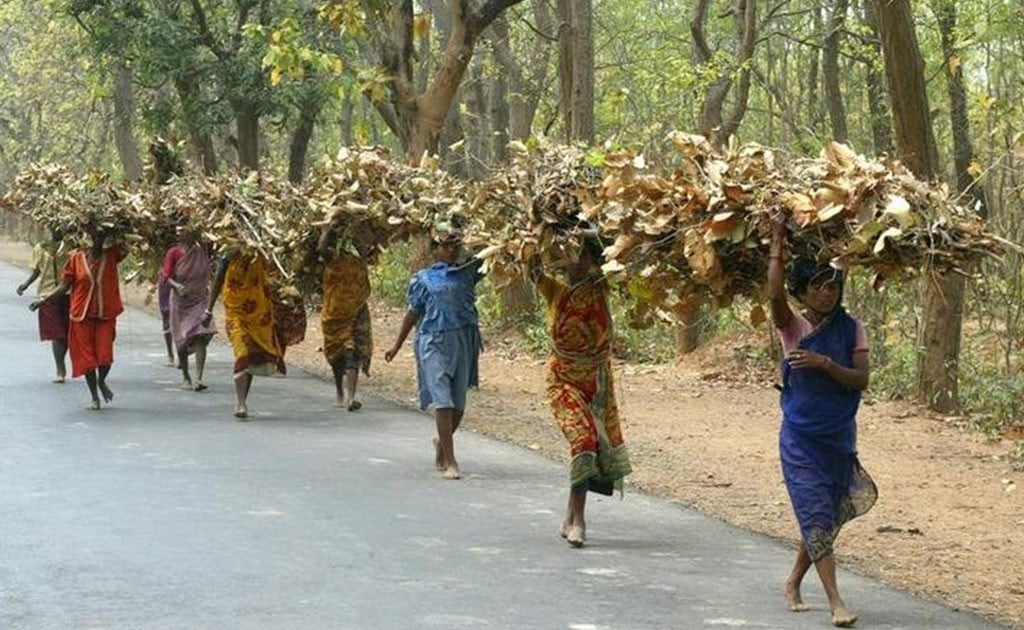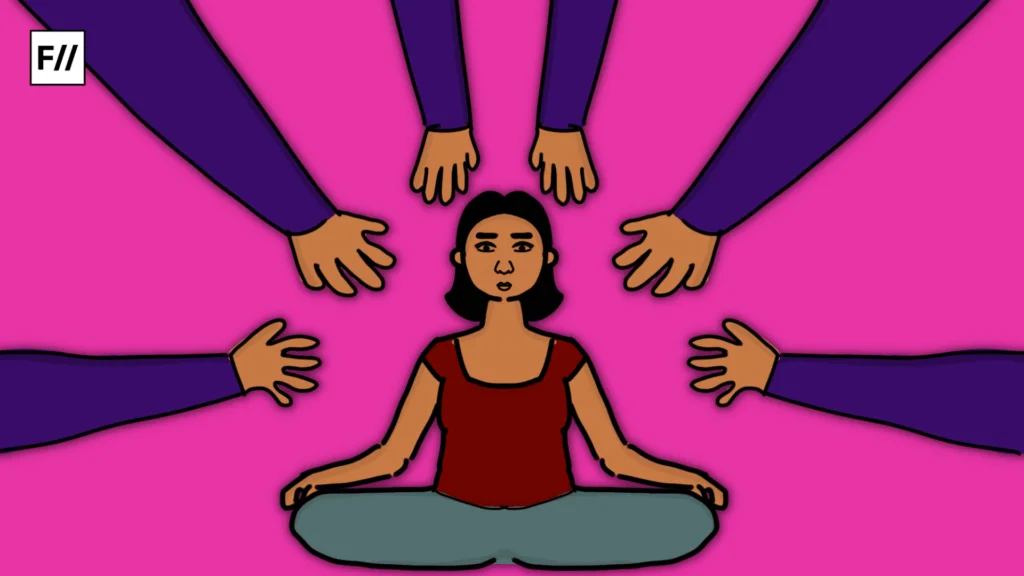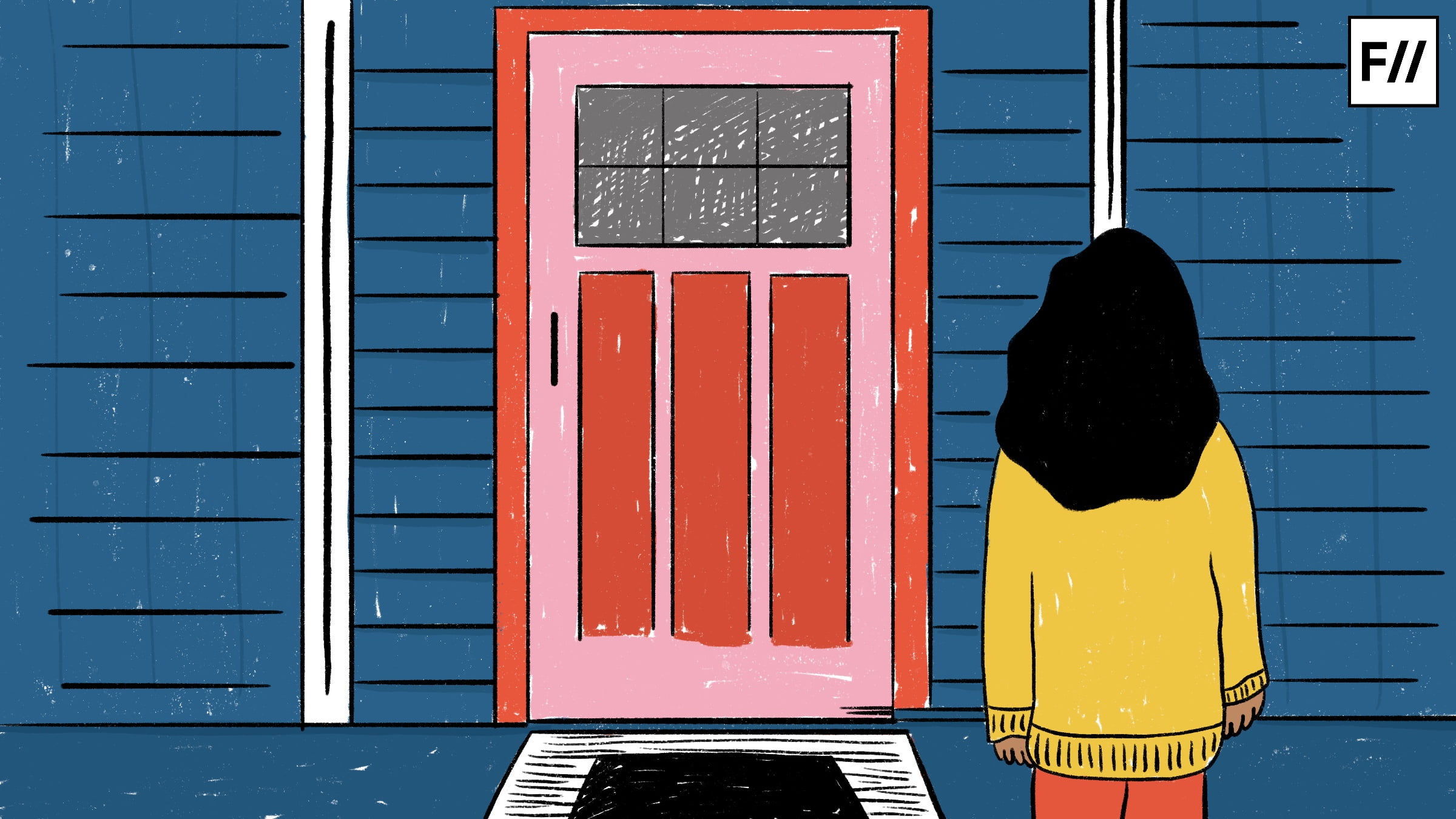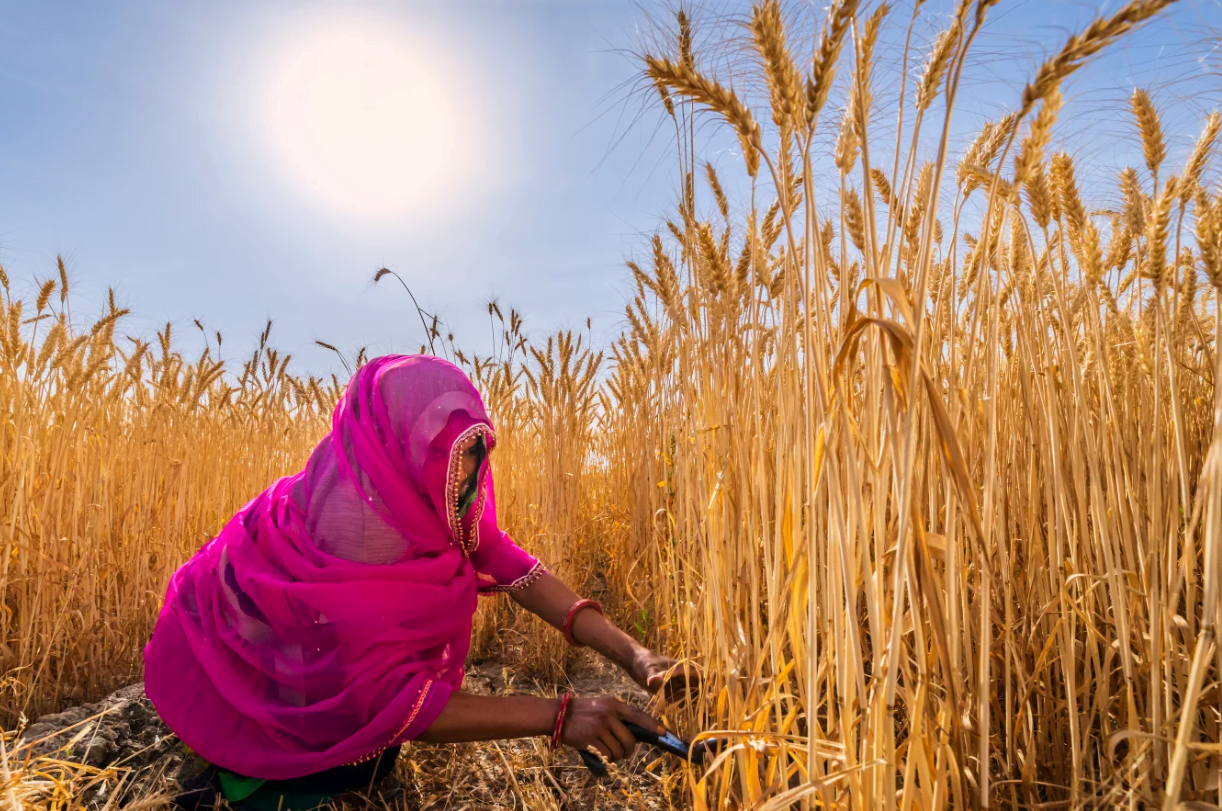Editor’s Note: FII’s #MoodOfTheMonth for July 2022 is Gender and Environment. We invite submissions on the many layers of this theme throughout the month. If you’d like to contribute, kindly refer to our submission guidelines and email your articles to sukanya@feminisminindia.com
There is no environmentalism without feminism and there is no feminism without environmentalism. The commodification of land and women is a part of the country’s dispossession-driven capitalism. Developmental projects have turned land into a commodity by detaching tribal people from the ways they have historically used it, and the symbolic connotation attached to it.
Women dispossessed from land under precarious conditions are forced into care work and gendered labour. Instances of trafficking, gendered violence and forceful sex work are rampant examples of how women’s bodies are commodified and objectified by normalising violence in the broader context of development.
Intensifying climate change across the globe has both implicit and explicit repercussions on women’s human rights. Women have limited access to, and control of environmental goods and services, negligible participation in decision-making, and face absence of involvement in the distribution of environment management benefits.
Amidst this situation of crisis, a story from the remote hilly terrains of western Odisha narrates path-breaking initiatives taken by Bonda tribal women to resist climate change with traditional knowledge systems that are yielding significant outcomes.
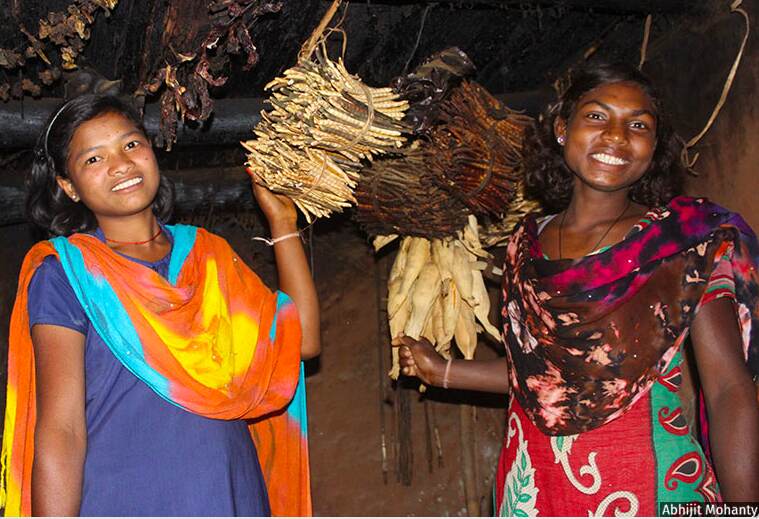
Impacts of climate change on Bonda subsistence
The Bondas, residing in the hilly terrains of Odisha, are a Particularly Vulnerable Tribal Group (PVTG) known for their distinctive cultural traditions. They are habitats of two gram panchayats in the Malkangiri districts of Odisha. Bondas are an agrarian community who supplement their income with animal rearing and seasonal forest produce. Climate change and extremities have adversely affected their livelihood patterns in the recent past.
Rising temperatures, flash floods, heavy rainfall and landslides have impacted their agricultural produce. While heavy rainfall washed away the top fertile soil, applying chemical inputs rendered their soil infertile. The advent of modern agricultural practices made Bondas shift from millet-centered mixed cropping systems to paddy which affected the availability of their staple food.
Hybrid seeds failed to withstand weather extremities. The National Family Health Survey (NFHS) data of 2015-16 states that every second child under the age of five in Malkangiri district is underweight and malnutritioned.
The oral history of Bonda tribe narrates how this entire community depended on Dangar chas for subsistence. Dangar chas is a unique form of shifting cultivation that enables the production of variety of crops without harming the land. A United Nations Framework on Climate Change suggested Dangar Chas is a highland cultivation that supplements nutrition to food basket without jeopardising climate. The Bonda women make sure to not cut fruit trees and medicinal plants
Bonda women’s socio-cultural identity
Bonda women are married to young boys of their community adhering to the culture and tradition of the community. Bonda women adorned with a traditional piece of cloth, called the ‘Ringa’ look majestic. The making of ringa has social values attached to it. Their clothes and ornaments are artistic and close to nature.
In an era of soap and detergents, Bonda women use ash and warm water for washing clothes. Bonda women with head bands, garlands of coins over their body and colourful beads, work on the fields from dawn to dusk to ensure the community’s food security. Pratibha Ray in her popular novel ‘Adibhumi’ presented a picture of the life of Bonda women.
She wrote about how traditional Bonda women are burdened with care work for the young groom and intensive labour on the field. The health of a family entirely depended on the health of a woman who is expected to be productive at both home and the field.
Also read: Feminisation Of Agriculture: Women In Farming Must Be Backed By Legal And Social Infrastructure
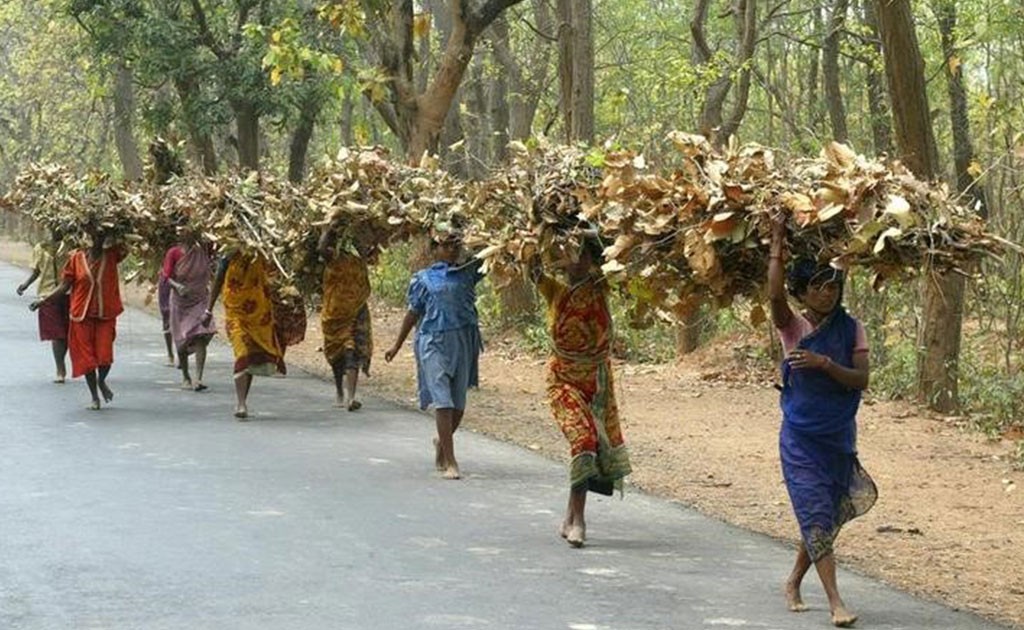
Tribal women’s resistance to climate change using traditional knowledge systems
Traditional knowledge refers to the understanding, skills and philosophies developed by societies with long histories of interaction with their natural surroundings. It is embedded in the cultural traditions of communities. This knowledge is integral to language, resource use practices, social interactions, rituals and spirituality.
They do not use any chemicals to protect the crops. Bonda women allow birds and insects to prey on the other insects that can be harmful to the crops. They play a key role in seed identification, collection and storage. Bonda women ensure that the seeds are sun dried and preserved using organic means. This process involves protecting the seeds by covering them with bengunia and neem leaves. This is a natural way of seed preservation owing to the traditional knowledge among Bonda women
Bonda tribal women have started addressing these issues by reverting to native cultivation patterns using indigenous knowledge, which is steadily yielding results. The initial step was to address the lack of staple food by reverting to the cultivation of native millets like proso, bajra, barnyard and foxtail (Kangni). These seeds are climate resilient and ensure nutritional safety.
The oral history of Bonda tribe narrates how this entire community depended on Dangar chas for subsistence. Dangar chas is a unique form of shifting cultivation that enables the production of variety of crops without harming the land. A United Nations Framework on Climate Change suggested Dangar Chas is a highland cultivation that supplements nutrition to food basket without jeopardising climate. The Bonda women make sure to not cut fruit trees and medicinal plants.

Flash floods and landslides in Malkangiri region destroyed mono crops. But the revival of traditional millet farming has led to the conservation of the surface soil and reduced erosion in the hilly region. Some of the innovative ways planned and initiated by Bonda women to conserve nature are significant.
They do not use any chemicals to protect the crops. Bonda women allow birds and insects to prey on the other insects that can be harmful to the crops. They play a key role in seed identification, collection and storage. Bonda women ensure that the seeds are sun dried and preserved using organic means. This process involves protecting the seeds by covering them with bengunia and neem leaves. This is a natural way of seed preservation owing to the traditional knowledge among Bonda women.
The road ahead
The government’s millet mission plan needs to be formulated in accordance with the requirements of The Bondas as their farming practice has evolved in adherence with nature and climate resilience practices are deeply embedded within their ecosystem. Bonda women utilising their traditional knowledge that stems from customs, rituals and culture is a ray of hope in times of crisis.
Their initiatives are remarkable and need to be recognised at macro levels. There are not only disparities in the coping mechanism to climate change by men and women but there are differences in how they experience and perceive extreme conditions. This calls for a broader objective – ensuring women’s participation in decision-making and policy formulation at local, community, national and global levels.
Also read: Seed Conservation By Women Farmers: Spearheading Sustainability And Financial Independence
Reference/source credit:
The insights and findings in this article are sourced from the report titled ‘How A Tribal Community In Odisha Is Battling Climate Change With Traditional Farming‘, by journalist Abhijit Mohanty, originally published by IndiaSpend
Swayamsiddha is a postgraduate in Sociology from Jawaharlal Nehru University. Her research area of interest lies in vulnerability and resilience building with special focus on women and children. She believes in voicing opinion through the art of writing. She is on LinkedIn and Facebook
Featured Image Source: NDTV.com
